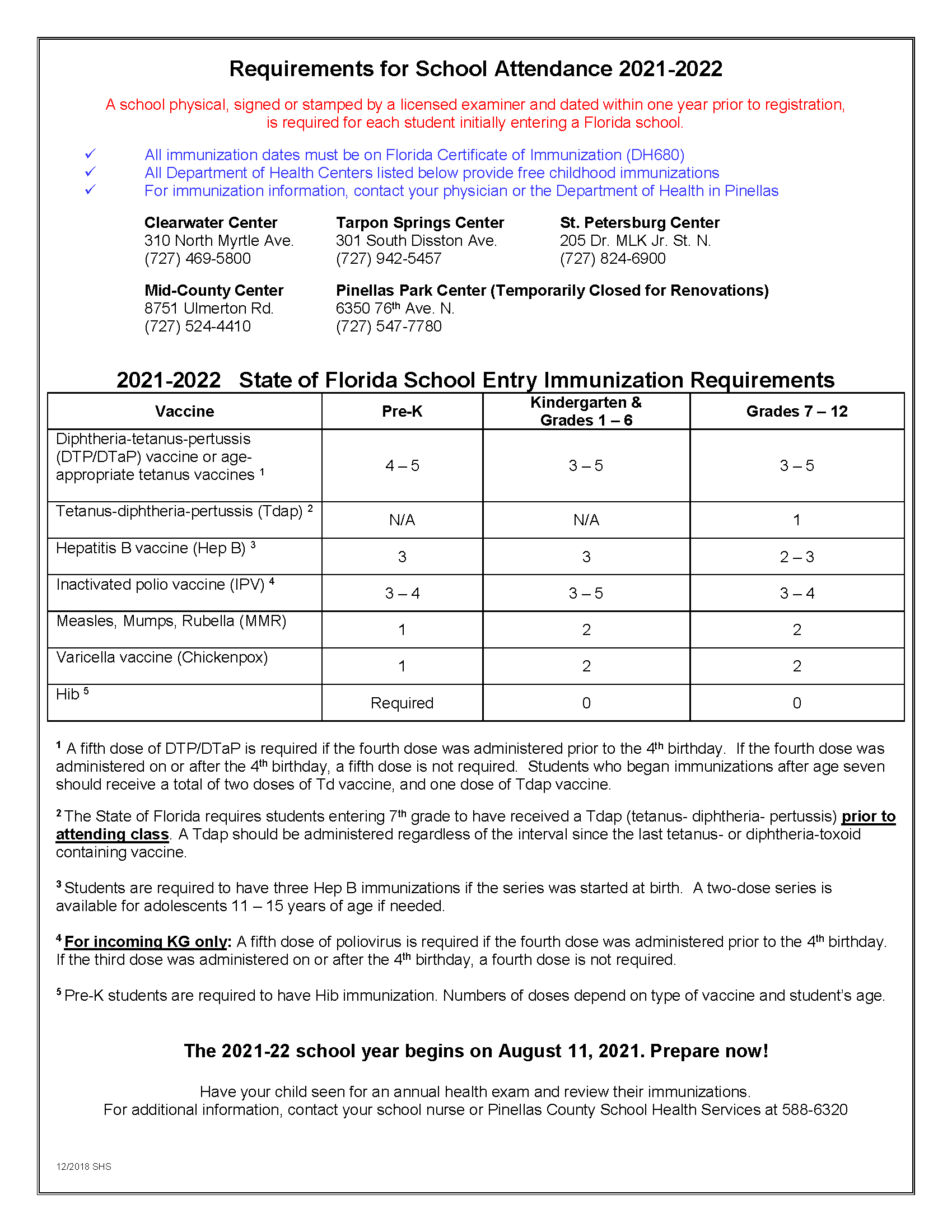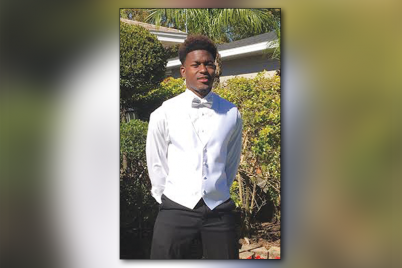PINELLAS COUNTY — Make sure your child has the required vaccines to protect them from preventable diseases. Vaccines help children develop immunity to diseases such as measles, chicken pox, polio and whooping cough. Vaccines also benefit students and other members of the community who are unable to get vaccinated.
Please review your children’s immunization records: Florida law requires families to submit documentation of age-appropriate vaccinations for all children in Pre-K through 12th-grade. Children entering kindergarten and seventh grade are typically due for vaccines. In fact, kindergarten and seventh-grade students are not legally allowed to attend class if schools do not have proper documentation for their immunizations. To prevent problems the first week of school, make sure your child’s school has their immunization form.
Need information about immunizations? Contact your child’s physician or the Florida Department of Health in Pinellas at 727-824-6900. The DOH provides free immunizations at health centers throughout the county. For any additional questions on school health, please call Pinellas County Schools Health Services department at 727-588-6320 or visit our PCS Health Services page at pcsb.org/health .
COVID-19 Vaccines
The Pfizer vaccine has been approved for children 12 and older. For more information about COVID-19 vaccines, see the Florida Department of Health website, floridahealth.gov, or the Pinellas County Government website, covid19.pinellascounty.org/vaccines.
Keep children home from school when they are sick
If your child is sick or develops any symptoms of COVID-19, including a fever, a new or persistent cough, the loss of taste or smell, headache, a sore throat, fatigue, nausea or diarrhea, please contact your child’s healthcare provider.
Never send your child to school if you think they may be sick. Your child should probably take a sick day if you notice that they have lost their appetite, are clingy or lethargic, complain of pain or are just not acting like themselves.
Tips to keep the whole family healthy
- Remember the basics: Eat a healthy diet, get plenty of sleep, stay active and stay up-to-date on recommended and required vaccines, including the annual flu vaccine.
- Wash your hands often: Frequent hand washing is one of the simplest and most effective ways to stay healthy in school and at home. Remind children to wash their hands before eating and after using the bathroom, blowing their noses or playing outside. Sing the “Happy Birthday” song twice while you scrub. Make sure everyone keeps their hands away from their eyes, nose and mouth.
- Cover your mouth and nose when you cough or sneeze: Cough or sneeze into the crook of arm, or inner elbow, to prevent germs from spreading.
- Don’t share water bottles, food or other personal items: Remind children that any items that touch their mouths should not be shared with others.









